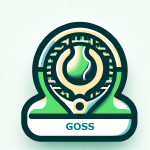Sinner’s Three-Month Doping Ban: A Controversial Resolution
Jannik Sinner Suspended for Three Months After Anti-Doping Violation
World No. 1 Jannik Sinner has officially accepted a three-month suspension from professional tennis following an anti-doping rule violation.
The 23-year-old Australian Open champion tested positive for clostebol, a banned anabolic steroid, during the Indian Wells Masters 1000 tournament in March 2024. While an Independent Tribunal (ITIA) ruled that Sinner bore “no fault or negligence”, the World Anti-Doping Agency (WADA) appealed the decision, seeking a harsher penalty.
Rather than facing a prolonged legal battle, Sinner and WADA reached a case resolution agreement under Article 10.8.2 of the WADA Code. His suspension runs until May 4, 2025, but he will be allowed to resume training on April 13.
Key Points of the Ban
✔ No Intent to Cheat – WADA acknowledged that Sinner had no intent to dope, nor did he gain any performance-enhancing advantage from clostebol.
✔ Negligence by His Team – The banned substance was accidentally transferred due to his physiotherapist’s use of a healing spray.
✔ Minimal Impact on Grand Slams – The suspension does not affect Sinner’s ability to compete in major tournaments, as he will return in time for the French Open and Italian Open.
✔ Loss of Indian Wells Points & Prize Money – While his Australian Open title remains intact, he has been stripped of ranking points and prize money from Indian Wells.
What’s Next for Sinner?
The timing of the suspension means that Sinner will miss key tournaments like Indian Wells and Miami, but he will return just in time for the clay-court season.
His expected comeback will be at the Italian Open, his home tournament, where he will prepare for Roland Garros and aim to regain momentum.
However, the ruling has sparked mixed reactions in the tennis world. Some believe WADA’s decision was fair, while others argue that Sinner received a lenient punishment, given the strict liability policy for banned substances.




